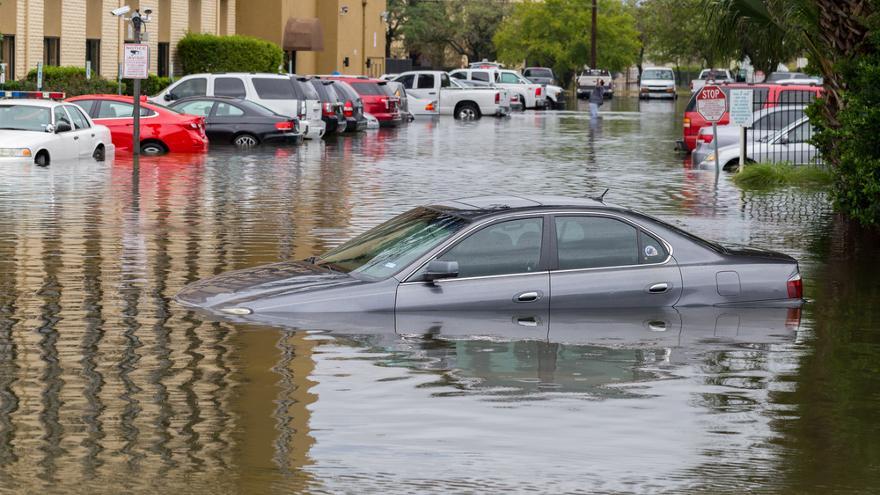After Barry, beware of flood-damaged car scams

Photo editorial credit: michelmond / Shutterstock.com.
By subscribing, you agree to receive communications from Auto Remarketing and our partners in accordance with our Privacy Policy. We may share your information with select partners and sponsors who may contact you about their products and services. You may unsubscribe at any time.
DES PLAINES, Ill. –
National Insurance Crime Bureau’s communications vice president Brooke Kelley says insurance companies and agents will be available to help those feeling the impact of the recent Hurricane Barry.
“However, when tragedy strikes, criminals have the tendency to swoop in and scam consumers, especially when it comes to the resale of flooded vehicles,” Kelley said in a news release.
Around the nation, Barry-flooded vehicles could soon appear for sale, according to NICB, which adds that especially if the price looks too good to be true, consumers should not hurry to buy a used vehicle.
In the coming weeks and months, vehicle buyers should stay aware: Thousands of Barry-damaged vehicles could reappear for sale in their areas, according to NICB. A vehicle owner or shady dealer might clean up a damaged vehicle that was not insured and put it up for sale, with no disclosure of the flood damage, the bureau said.
NICB recommends that buyers have a reputable technician or repair facility check the vehicle before making the sale final.
Recent news articles have reported on the issues involved with checking vehicles for flood damage. But NICB has some tips of its own for consumers:
Subscribe to Auto Remarketing to stay informed and stay ahead.
By subscribing, you agree to receive communications from Auto Remarketing and our partners in accordance with our Privacy Policy. We may share your information with select partners and sponsors who may contact you about their products and services. You may unsubscribe at any time.
— Check carefully for water stains, mildew, sand or silt under the carpet, floor mats, and dashboard. Also check in the wheel well where the spare is stored. Fogging inside the headlights and taillights is another bad sign.
— Do a smell test. If you notice a heavy aroma of cleaners and disinfectants, beware. That could be a sign of someone attempting to hide a mold or odor problem.
— Obtain a vehicle history report or check a database service such as NICB's free VINCheck database.
— Take the vehicle to a trusted mechanic who can look at its mechanical and electrical components, as well as systems containing fluids, for water contamination.
— Use NICB’s social media hashtag #insurancecrime for tips as the recovery progresses in the Southeast.
NICB’s VINCheck information is available for free as a public service to consumers. It is made possible through the cooperation of participating NICB member companies.
With VINCheck, car buyers can see whether a vehicle has ever been declared as "salvage" or a total loss by an NICB member that participates in the program. Salvage data from insurers representing about 88 percent of the personal auto insurance market is provided to the program. It also shows an alert to users in the event a vehicle has been stolen and is still unrecovered.
NICB works with its member companies, law enforcement, and auto auction companies after a disaster to identify vehicles with an insurance claim filed. Parts companies buy most of the vehicles. Then those companies dismantle them and re-sell usable parts that did not get flood damaged.
The Vehicle Identification Number of Barry-damaged vehicles will be searchable through VINCheck and the National Motor Vehicle Title Information System (NMVTIS) database.
The VINCheck database contains only salvage, stolen vehicle or total loss records that participating member companies make available. NICB says that before users take any action, they should independently verify the accuracy of any information obtained through VINCheck.


